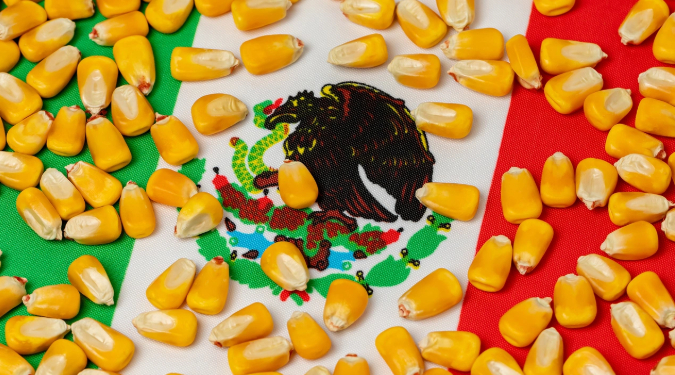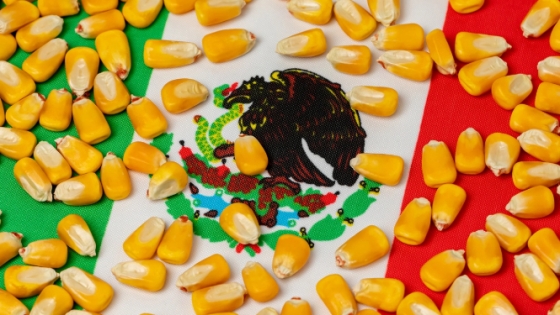(VAN) The USMCA dispute panel ruled in favor of the United States on Friday, stating Mexico violated the trade agreement with its decree to ban GMO corn.
This ensures U.S. farmers will still have access to their largest corn export market.

The USMCA panel ruling affirms decisions must be based on science, not politics, providing a sense of security for the corn industry.
Mexico’s 2023 decree to ban genetically modified corn imports violated its commitments under the United States-Mexico-Canada Agreement according to a Friday dispute panel ruling. This announcement marks a major trade victory for the Biden administration.
The USMCA panel agreed with the U.S. on all seven legal claims, finding that Mexico’s ban on importing genetically modified corn was not based on science and undermined the market access that Mexico agreed to provide through the USMCA.
“The panel’s ruling reaffirms the United States’ longstanding concerns about Mexico’s biotechnology policies and their detrimental impact on U.S. agricultural exports,” says United States Trade Representative Katherine Tai. “It underscores the importance of science-based trade policies that allow American farmers and agricultural producers to compete fairly and leverage their innovation to address climate change and enhance productivity.”
During the first 10 months of 2024, U.S. farmers exported $4.8 billion of corn to Mexico, the largest export market for corn.
“This decision ensures that U.S. producers and exporters will continue to have full and fair access to the Mexican market, and is a victory for fair-, open-, science- and rules-based trade, which serves as the foundation of the USMCA as it was agreed to by all parties,” echoes Agriculture Secretary Tom Vilsack.
The panel issued its final report to both parties on December 20, 2024. Under USMCA rules, Mexico has 45 days from the date of the final report to comply with the panel’s findings.
Since the enactment of USMCA, the formation of dispute panels has been uncommon and must meet a high threshold of requirements. Now that a ruling has been made, corn advocates will work with the U.S. trade representative and Trump administration to ensure the ruling is enforced.
In response to the ruling, Mexico’s Economy Ministry explained it does not agree with the ruling and the measures in question protect public health and the rights of indigenous peoples. “Despite this, the Government of Mexico will respect the determination, since the USMCA dispute resolution system is a key part of said treaty,” the ministry wrote in a statement.
Agriculture industry applauds decision
The panel’s decision was met with praise from many American corn advocates who called on U.S. Trade Representative Tai to file the dispute, including Kenneth Hartman, Jr., National Corn Growers Association president and Illinois farmer.
“This is an incredible development for the nation’s corn growers and rural communities,” Hartman says. “This outcome is a direct result of the advocacy efforts of corn grower leaders from across the country. We want to thank the nation’s growers for speaking out and U.S. officials for listening and acting.”
NCGA leaders argued that the ban would significantly harm growers and rural communities, especially because Mexico is the number one export destination for U.S. corn.
U.S. Grains Council President and CEO Ryan LeGrand was also quick to thank the USTR office for their efforts. “Mexico has always been a powerful partner to U.S. corn growers and exporters, so when the country tried banning GM corn imports that would have severely affected our industry, we appreciated the extra effort the U.S. Trade Representative gave in filing the dispute and seeing it through to its logical conclusion,” LeGrand says. “The Council worked with the USTR and in Mexico to help ensure the dispute result was fair, and we look forward to continuing our work with our top U.S. grains-in-all-forms customer.”
Background on biotech corn dispute
Mexican President Andrés Manuel López Obrador first set off alarms in the Corn Belt in December 2020 when he initiated a decree to ban genetically modified corn by the end of 2024.
In November, 2022, Mexican President Andres Manuel Lopez Obrador signaled he was willing to soften his stance on a planned ban amid pressure from the U.S. government. He explained he was considering allowing genetically-modified yellow corn for livestock feed, which was a major change from previous government statements. He later added he might be willing to delay the ban for a year. U.S. officials remained unmoved by those concessions and did not see a need to compromise.
After years of failed negotiations, U.S. agriculture leaders called for the U.S. trade representative to establish a dispute resolution panel, which would be tasked with hearing arguments from both sides before making a ruling.
The USTR established the dispute panel on Aug. 17, 2023 under the USMCA, which brought six legal claims under the Sanitary and Phytosanitary Measures Chapter and one legal claim under the National Treatment and Market Access for Goods Chapter of the USMCA. The United States prevailed on all seven claims.
Earlier this year, U.S. Chief Agricultural Negotiator Doug McKalip predicted the long-running dispute would be resolved this year.
“The panel’s conclusion backs up our long-held position that agricultural trade policies must be grounded in science and must not disrupt trade in agricultural products,” says McKalip.
Agriculture News | Agri Products Price



